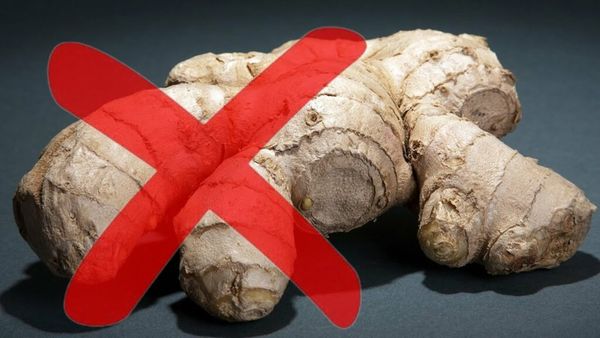Ginger is a popular spice with a unique flavor and numerous health benefits. It’s commonly used in cooking, but there are situations where ginger may not be suitable for everyone. Let’s take a friendly look at when it’s best to think twice before using ginger.

1. Blood-Thinning Concerns
Ginger has natural blood-thinning properties, which can be beneficial in some cases. However, if you take medications like warfarin or aspirin that also thin the blood, combining them with ginger may increase the risk of bleeding. To be safe, it’s always wise to consult your doctor before incorporating ginger into your diet if you’re on blood-thinning medication.
2. Gallstones
Ginger promotes bile production, which aids digestion. While this is generally a good thing, it can cause discomfort and complications for individuals with gallstones. If you have gallstones, it might be better to limit your ginger intake to avoid triggering any painful episodes.
3. Low Blood Pressure and Heart Conditions
Ginger has been found to lower blood pressure, which can be beneficial for many people. However, if you already have low blood pressure or specific heart conditions, ginger consumption may cause your blood pressure to drop too low or interfere with heart medications. It’s important to check with your healthcare provider if you have any concerns regarding your heart health and ginger consumption.
4. Pregnancy
Ginger is often recommended to help relieve morning sickness during pregnancy. However, it’s important to consume ginger in moderation, especially as the due date approaches, because high amounts of ginger may increase the risk of bleeding. Pregnant women should always seek medical advice and use ginger sparingly.
5. Sensitive Stomach
While ginger can help with digestive issues, consuming large quantities of it may irritate the stomach lining. If you have a sensitive stomach or conditions like peptic ulcers, ginger might exacerbate your symptoms. It’s best to use ginger in moderation or explore alternative spices that are more gentle on your digestive system.
- Consult Your Doctor: It’s always a good idea to talk to your healthcare provider before adding ginger to your diet, especially if you have existing health conditions.
- Start Small: If you’re new to ginger, begin with small amounts to see how your body responds.
- Consider Alternatives: If ginger isn’t suitable for you, there are plenty of other spices to explore. You may also want to consult a nutritionist for alternative recommendations.
Ginger has numerous benefits, but it’s important to use it wisely, taking into account your personal health conditions. With the right precautions, you can enjoy the flavors and benefits of ginger without any concerns.




